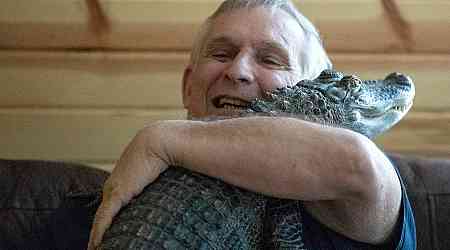The benefits of higher education in Utah are “relatively overwhelming,” the president of the state’s flagship university said Wednesday.
“What I’ve always loved about higher education is it has this remarkable transformational power in individuals,” University of Utah President Taylor Randall said during an event at the Kem C. Gardner Policy Institute.
Randall and presidents of three other public, postsecondary institutions spoke about the value of a degree or certificate for people and the broader community following a quick presentation of the Gardner Institute’s new policy brief.
That report found that economic data “make clear that Utahns who secure higher education degrees earn more income, secure greater employment opportunities, achieve greater upward mobility, participate less in public assistance programs, and garner a variety of other positive individual and societal benefits.”
Analysts looked at the effects the Utah System of Higher Education — a group that includes eight public colleges and universities and eight technical colleges — has on the state.
Here are three ways analysts argue higher education benefits individuals and the broader community.
More education = more earnings
Overall, Utahns earn a median of $49,534 a year. That number increases as people get a bachelor’s, graduate or professional degree, the report said.
Utahns with graduate or professional degrees make the most, with median earnings of $87,987. That’s nearly double the median earnings of residents with an associate degree, 121% more than Utahns with a high school diploma and 154% more than people who didn’t complete high school or pass an equivalency exam.
About 71% of 2022 graduates from the 16 colleges and universities in Utah’s higher education system got a degree leading to high-wage, high-demand jobs.
Having at least a bachelor’s degree also correlates with lower rates of poverty.
Utahns with higher education degrees are 40% less likely to live below the federal Poverty Level. That’s currently $14,580 for an individual and $30,000 for a family of four.
About 7% of Utahns overall live in poverty. For Utahns with a bachelor’s degree, that figure drops to 4%, while 15.2% of Utahns who have not earned a high school diploma or a GED are below the poverty level.
Higher levels of education also translate into lower unemployment rates, which range from 1.7% for people with at least a four-year degree to 2.5% for people with some college education or a two-year degree to 4.2% for Utahns with less than a high school diploma.
Utahns with degrees are happier, healthier
Utahns with a postgraduate degree or certificate are happier, healthier, and more confident in their future, according to the report.
They’re 20% more likely to report they’re happy and 25% more likely to say they’re confident in future career success than Utahns without a college degree or certificate.
While they’re 24% more likely to consider themselves healthy than people with a high school diploma or less, Utahns with a high school diploma aren’t much less likely to say they have excellent, very good or good general health.
The biggest difference in reported health comes from Utahns who didn’t finish high school or pass a high school equivalency exam.
About 63% of them reported at least good health, while people with a high school degree or more reported excellent, very good or good health at least 84.6% of the time.
Society benefits through more engagement, higher taxes, economic effects of institutions
Utahns with at least a two-year degree or certificate are more likely to give back in various ways, the analysts found.
About 46% of residents with higher education degrees volunteer in the community, compared to 25% of those without. That means Utahns who graduated with an associate degree or certificate or who went on to complete bachelor’s, graduate and professional degrees are 45.7% more likely to volunteer than those who didn’t.
They’re also 32.1% more likely to vote in state elections.
A little more than ¾ of Utahns with some sort of higher education degree or certificate vote in state elections, compared to about half of those residents without.
Nationally, as people complete more education, they’re also less likely to use public assistance, and their tax payments go up incrementally.
Society also benefits from higher education, the analysts write, through job creation and economic contributions.
Utah’s public higher education system was one of the largest employers in the state in 2023 with about 130,000 jobs. Those schools also generate an estimated $11.3 billion in gross domestic product for the state’s economy, most of which comes through the two research universities — University of Utah and Utah State University.
Researchers found that for every dollar budgeted on education services — including higher education — the state’s economy gets back 2.1 times what it spends.
This is a developing story.
Megan Banta is The Salt Lake Tribune’s data enterprise reporter, a philanthropically supported position. The Tribune retains control over all editorial decisions.
























